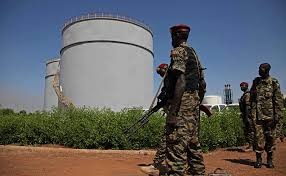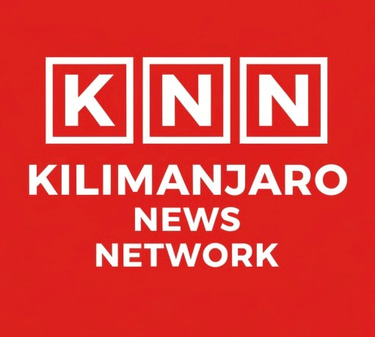Oil, Ethnicity, Power: The Tangled Web Fuelling South Sudan's Crisis
Sudan, a land where the Nile snakes through vast plains and ancient pyramids whisper tales of forgotten kingdoms, is also a land etched with the harsh lines of conflict. This story, far deeper than the fleeting images on our screens, delves into a rich tapestry of empires, a relentless pursuit of unity, and the enduring scars of division.
WORLD AFFAIRS
3/7/20244 min read


Sudan: A Tale of Two Lands, Rooted in History, Divided by Conflict.
As gunfire crackles through the streets of Khartoum. In the vast plains of Darfur, families huddle together, seeking refuge from the latest outbreak of violence. Sudan, a nation of breathtaking beauty and profound historical significance, finds itself once again embroiled in conflict. But this complex story goes far beyond the headlines. It's a tale of ancient kingdoms that shaped African civilisation, a struggle for unity amidst deep-rooted divisions, and a nation striving for a peaceful future.
Delving into this rich tapestry, we'll explore Sudan's glorious pre-colonial past, where empires flourished along the Nile River. We'll examine the stark contrasts between the north and south, the seeds of a future division sown long ago. We'll navigate the brutal civil wars fuelled by both internal tensions and external forces. Finally, we'll analyse the recent conflict, its causes, and potential paths towards a lasting peace.
Sudan, a land where the Nile snakes through vast plains and ancient pyramids whisper tales of forgotten kingdoms, is also a land etched with the harsh lines of conflict. This story, far deeper than the fleeting images on our screens, delves into a rich tapestry of empires, a relentless pursuit of unity, and the enduring scars of division.
From the Cradle of Civilisation to Colonial Scars
Long before European boots touched African soil, Sudan thrived as the cradle of African civilisation. The Nubians, flourishing along the Nile from 3500 BC, established trade routes, erected magnificent pyramids, and developed a sophisticated writing system, leaving an indelible mark on the continent's history. The Kingdom of Kush, emerging around 800 BC, rivalled Egypt in its might, leaving behind breathtaking temples and royal cities as testaments to its power.
These ancient societies played a pivotal role in shaping Africa, introducing new crops and irrigation techniques, fostering trade and cultural exchange, and showcasing their artistic prowess and engineering ingenuity through impressive architecture and sculptures.
However, the arrival of colonial rule in 1899 cast a long shadow. The British, wielding the reins of power, carved Sudan into separate northern and southern regions, a decision that would have profound and lasting consequences. The north, with its Arab and Islamic identity, received preferential treatment in terms of development and resources. The south, a land of rich African traditions and a blend of Christian and animistic beliefs, was largely neglected, fostering a deep sense of alienation and resentment that festered for decades.
A Brutal Civil War and a Nation Divided
After gaining independence in 1956, these simmering tensions erupted into a brutal civil war that would span generations. The Arab-led government in the north, seeking to impose its cultural and religious identity, clashed with southern resistance movements like the Sudan People's Liberation Army (SPLA). The Cold War further complicated the situation, with the north receiving support from Arab states and the Soviet Union, while the south found allies in Ethiopia and some Western nations. This external involvement, far from resolving the conflict, only added fuel to the fire, prolonging the bloodshed.
The discovery of oil in the south in the late 20th century added another layer of complexity. The north, already in control of most resources, now held the key to a valuable resource concentrated in the neglected south. This further deepened the economic divide and fuelled the fight for self-determination in the south.
A Glimmer of Hope and a Nation Splits
Finally, in 2005, a glimmer of hope emerged. The signing of the Comprehensive Peace Agreement (CPA) brought a ceasefire and promised a referendum on southern independence. The year 2011 witnessed a pivotal moment. In a nearly unanimous vote, the people of the south chose a new path, leading to the birth of the world's newest nation - South Sudan.
While internal factors played the most significant role in the split, the international community, weary of the long conflict, likely nudged both sides towards a peaceful resolution. Additionally, some regional powers may have seen advantages in a divided Sudan, adding a complex geopolitical dimension to the equation.
The Struggles of the Two Sudans
However, the story of the two Sudans does not end with independence. Both nations continue to grapple with the scars of conflict, struggling with economic hardship and political instability. The path forward remains uncertain, a reminder that the wounds of the past can take generations to heal, while the pursuit of true peace and equality remains a constant struggle.
Understanding the Recent Conflict in South Sudan
The euphoria of independence in South Sudan was tragically short-lived. Deep-rooted ethnic tensions, unresolved power struggles within the new government, and continued competition for resources, particularly oil, all fuelled a new wave of violence that erupted in 2013. This renewed conflict has displaced millions, triggered a humanitarian crisis, and cast a shadow over the fledgling nation's future.
The current conflict can be traced back to a power struggle within the ruling party, the Sudan People's Liberation Movement (SPLA). In 2013, President Salva Kiir, from the Dinka ethnic group, accused his former vice president, Riek Machar, a Nuer, of plotting a coup. This ignited violence along ethnic lines, with Dinka and Nuer communities bearing the brunt of the fighting.
Beyond the immediate trigger, several stakeholders and power brokers have perpetuated the conflict. Regional powers, with their own economic and political interests, have sometimes fuelled the flames by providing arms and support to different factions. Internal power struggles within the SPLM, where various factions jockey for control of resources and influence, also continue to hinder peace efforts.
The international community, led by the United Nations and African Union, has attempted to broker peace agreements. However, these agreements have proven fragile, with violations occurring on all sides. The ongoing violence has created a massive humanitarian crisis, displacing millions of people and leaving many facing starvation and disease.
The story of the two Sudans serves as a stark reminder of the enduring legacy of colonialism and the challenges of nation-building in a region rich in resources but steeped in conflict. As the international community continues to grapple with the ongoing crisis, the hope remains that a lasting peace can be achieved, allowing both Sudan and South Sudan to finally turn the page on a turbulent past.
Kilimanjaro News Network will like to hear from you directly.
Is the world helping or fuelling Sudan's conflict?
Will Sudan and South Sudan ever find unity, or are they destined for perpetual conflict?
How can Sudan and South Sudan heal from colonialism to build a lasting peace?
Who protects the innocent when nations crumble?
Send us your messages. Remember to like, share, and subscribe to Kilimanjaro News Network - the authentic voice of Africa. Scan our QR Code and visit our YouTube Channel for more news coverage and unique analysis. Kilimanjaro News Network broadcasts in Swahili, Arabic, English and French.
